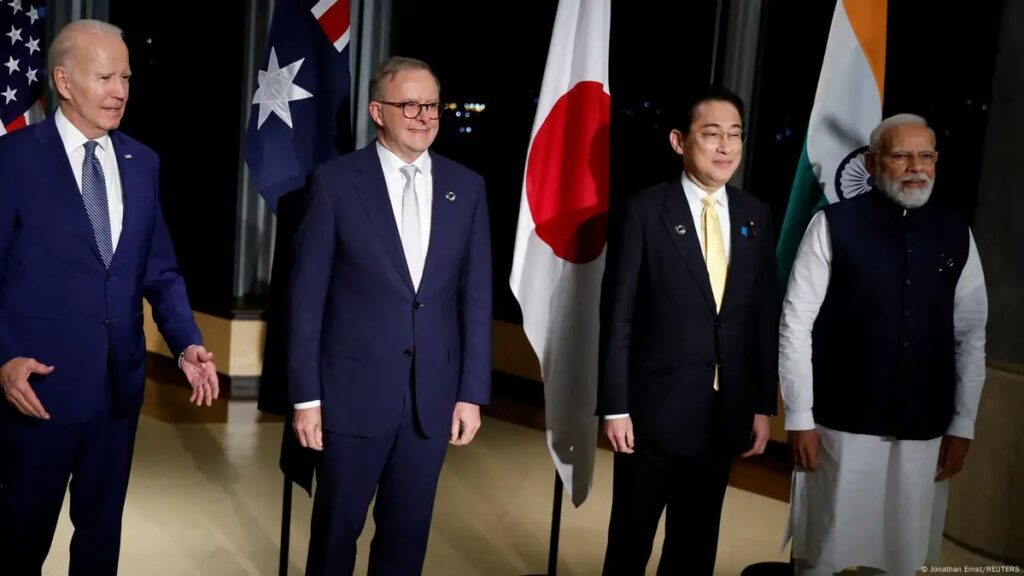The Quad members also expressed concerns over missile launches in the region that contravene UN Security Council resolutions, advocating for enhanced maritime security

WASHINGTON: US President Joe Biden welcomed the leaders of Australia, India, and Japan to his private residence in Delaware for a pivotal Quad summit focused on Indo-Pacific security. Prime Ministers Anthony Albanese of Australia, Narendra Modi of India, and Fumio Kishida of Japan joined Biden to address pressing regional challenges, notably China’s growing assertiveness.
In informal remarks captured by the press, Biden noted that while Chinese President Xi Jinping may be preoccupied with domestic economic issues, the Chinese administration continues its aggressive maneuvers in the Indo-Pacific. He highlighted China’s actions across multiple domains, including the South China Sea, East China Sea, South Asia, and the Taiwan Strait, describing these as spanning both diplomatic and economic spheres. Publicly, Biden reiterated the commitment of the four democracies, declaring, “The Quad is here to stay.”
This commitment was reinforced in a joint statement from the leaders, outlining their collective vision for peace and stability in the region. Although the statement specifically mentioned China three times, it robustly condemned any destabilizing actions that could alter the regional status quo through force or coercion. The Quad members also expressed concerns over missile launches in the region that contravene UN Security Council resolutions, advocating for enhanced maritime security.
A significant outcome of the summit was the announcement of new initiatives aimed at bolstering regional maritime security. This includes sharing advanced maritime technologies with Indo-Pacific nations and launching collaborative efforts between coast guards. During discussions, Biden and Kishida emphasized the importance of diplomatic relations with China, expressing mutual apprehensions regarding “coercive and destabilizing activities” in the South China Sea. Both leaders reaffirmed their commitment to preserving peace in the Taiwan Strait and advancing cooperation on critical technologies, including artificial intelligence and semiconductors.
Looking ahead, the Quad is planning a joint coast guard mission for 2025 to combat illegal fishing, particularly targeting areas where Chinese vessels have been identified as significant violators. While the Quad’s discussions regarding China were more subdued in their official statements, experts have noted that Beijing’s expanding influence remains a central theme in the group’s deliberations. Rafiq Dossani, an Asia scholar, remarked that although the leaders are cautious about publicly antagonizing China, the strategic competition with Beijing continues to be a driving force behind Quad cooperation.
#Biden, #QuadSummit, #IndoPacificSecurity, #China, #MaritimeSecurity, #GlobalCooperation, #Diplomacy, #RegionalStability



